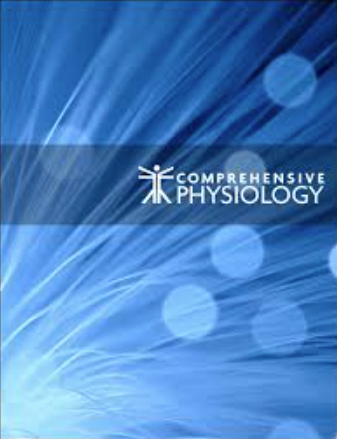求助PDF
{"title":"焦虑相关障碍患者的交感神经控制。","authors":"Jeremy A Bigalke, Jason R Carter","doi":"10.1002/cphy.c210027","DOIUrl":null,"url":null,"abstract":"<p><p>Numerous conceptual models are used to describe the dynamic responsiveness of physiological systems to environmental pressures, originating with Claude Bernard's milieu intérieur and extending to more recent models such as allostasis. The impact of stress and anxiety upon these regulatory processes has both basic science and clinical relevance, extending from the pioneering work of Hans Selye who advanced the concept that stress can significantly impact physiological health and function. Of particular interest within the current article, anxiety is independently associated with cardiovascular risk, yet mechanisms underlying these associations remain equivocal. This link between anxiety and cardiovascular risk is relevant given the high prevalence of anxiety in the general population, as well as its early age of onset. Chronically anxious populations, such as those with anxiety disorders (i.e., generalized anxiety disorder, panic disorder, specific phobias, etc.) offer a human model that interrogates the deleterious effects that chronic stress and allostatic load can have on the nervous system and cardiovascular function. Further, while many of these disorders do not appear to exhibit baseline alterations in sympathetic neural activity, reactivity to mental stress offers insights into applicable, real-world scenarios in which heightened sympathetic reactivity may predispose those individuals to elevated cardiovascular risk. This article also assesses behavioral and lifestyle modifications that have been shown to concurrently improve anxiety symptoms, as well as sympathetic control. Lastly, future directions of research will be discussed, with a focus on better integration of psychological factors within physiological studies examining anxiety and neural cardiovascular health. © 2022 American Physiological Society. Compr Physiol 12:1-33, 2022.</p>","PeriodicalId":10573,"journal":{"name":"Comprehensive Physiology","volume":"12 1","pages":"3085-3117"},"PeriodicalIF":4.2000,"publicationDate":"2021-12-29","publicationTypes":"Journal Article","fieldsOfStudy":null,"isOpenAccess":false,"openAccessPdf":"","citationCount":"5","resultStr":"{\"title\":\"Sympathetic Neural Control in Humans with Anxiety-Related Disorders.\",\"authors\":\"Jeremy A Bigalke, Jason R Carter\",\"doi\":\"10.1002/cphy.c210027\",\"DOIUrl\":null,\"url\":null,\"abstract\":\"<p><p>Numerous conceptual models are used to describe the dynamic responsiveness of physiological systems to environmental pressures, originating with Claude Bernard's milieu intérieur and extending to more recent models such as allostasis. The impact of stress and anxiety upon these regulatory processes has both basic science and clinical relevance, extending from the pioneering work of Hans Selye who advanced the concept that stress can significantly impact physiological health and function. Of particular interest within the current article, anxiety is independently associated with cardiovascular risk, yet mechanisms underlying these associations remain equivocal. This link between anxiety and cardiovascular risk is relevant given the high prevalence of anxiety in the general population, as well as its early age of onset. Chronically anxious populations, such as those with anxiety disorders (i.e., generalized anxiety disorder, panic disorder, specific phobias, etc.) offer a human model that interrogates the deleterious effects that chronic stress and allostatic load can have on the nervous system and cardiovascular function. Further, while many of these disorders do not appear to exhibit baseline alterations in sympathetic neural activity, reactivity to mental stress offers insights into applicable, real-world scenarios in which heightened sympathetic reactivity may predispose those individuals to elevated cardiovascular risk. This article also assesses behavioral and lifestyle modifications that have been shown to concurrently improve anxiety symptoms, as well as sympathetic control. Lastly, future directions of research will be discussed, with a focus on better integration of psychological factors within physiological studies examining anxiety and neural cardiovascular health. © 2022 American Physiological Society. Compr Physiol 12:1-33, 2022.</p>\",\"PeriodicalId\":10573,\"journal\":{\"name\":\"Comprehensive Physiology\",\"volume\":\"12 1\",\"pages\":\"3085-3117\"},\"PeriodicalIF\":4.2000,\"publicationDate\":\"2021-12-29\",\"publicationTypes\":\"Journal Article\",\"fieldsOfStudy\":null,\"isOpenAccess\":false,\"openAccessPdf\":\"\",\"citationCount\":\"5\",\"resultStr\":null,\"platform\":\"Semanticscholar\",\"paperid\":null,\"PeriodicalName\":\"Comprehensive Physiology\",\"FirstCategoryId\":\"3\",\"ListUrlMain\":\"https://doi.org/10.1002/cphy.c210027\",\"RegionNum\":2,\"RegionCategory\":\"医学\",\"ArticlePicture\":[],\"TitleCN\":null,\"AbstractTextCN\":null,\"PMCID\":null,\"EPubDate\":\"\",\"PubModel\":\"\",\"JCR\":\"Q1\",\"JCRName\":\"PHYSIOLOGY\",\"Score\":null,\"Total\":0}","platform":"Semanticscholar","paperid":null,"PeriodicalName":"Comprehensive Physiology","FirstCategoryId":"3","ListUrlMain":"https://doi.org/10.1002/cphy.c210027","RegionNum":2,"RegionCategory":"医学","ArticlePicture":[],"TitleCN":null,"AbstractTextCN":null,"PMCID":null,"EPubDate":"","PubModel":"","JCR":"Q1","JCRName":"PHYSIOLOGY","Score":null,"Total":0}
引用次数: 5
引用
批量引用

 求助内容:
求助内容: 应助结果提醒方式:
应助结果提醒方式:


